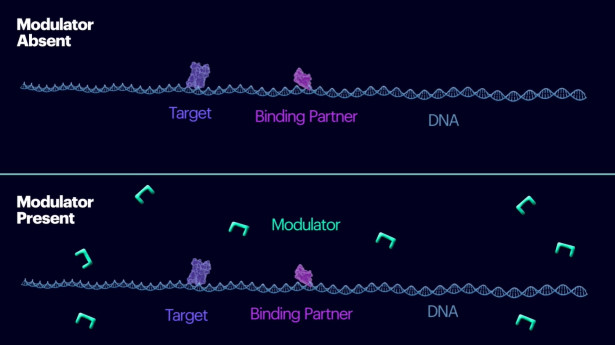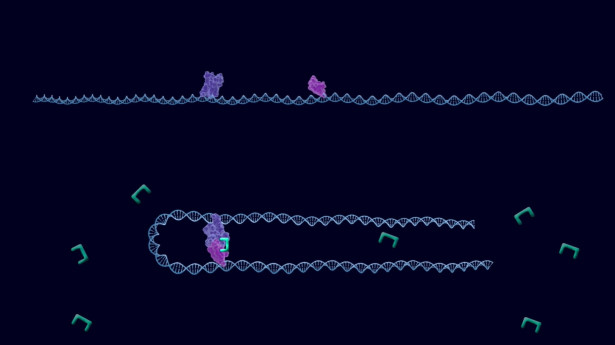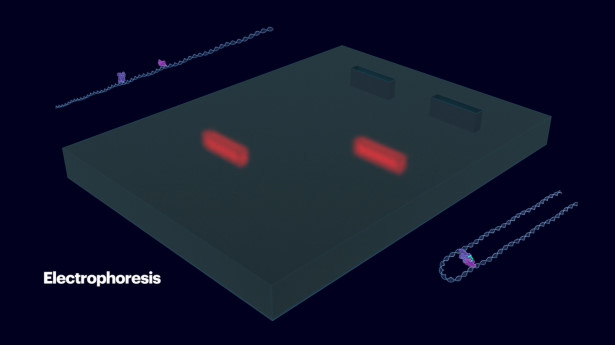Introducing “Lab-on-a-Molecule” Drug Discovery Approach via DNA Nanoswitches
The challenge faced by current compound screening approaches often lies in their limitations, either in throughput or their capacity to screen for the complex ways disease-relevant molecules can be functionally affected by drugs. This makes it difficult to discover novel therapeutics that modulate protein activities, consequently hampering the development of treatments for many diseases.
The "Lab-on-a-Molecule" project, led by Wyss Institute Core Faculty member Wesley Wong, Ph.D., has developed a solution using DNA nanoswitch technology. This platform enables high-throughput, low-cost screening of compound libraries, which consist of small molecules, biologics, peptides, and other types of compounds, to discover novel drug candidates based on their effects on disease-relevant protein functions.

The innovative "Lab-on-a-Molecule" technology offers a high-throughput, low-cost screening platform for small molecules and biologics, aiming to facilitate the discovery of first-in-class therapeutics for a variety of conditions. It enables function-based discovery of new drug candidates, the ability to design assays for diverse types of target proteins, and a modular approach that enables the screening of a wide range of therapeutic compounds.

DNA nanoswitches are nanoscale devices that report interaction patterns of attached components through changes in spatial arrangements. These devices consist of long, linear DNA molecules that act as programmable scaffolds, allowing binding partners such as proteins or small molecules to be attached. The association of these binding partners results in the formation of loops, which can be identified and separated using gel electrophoresis.

The programmability of DNA nanoswitches offers precise control over pathway components at the single-molecule level, including setting defined target and drug quantities and local concentrations. This innovative technology has the potential to substantially improve the drug discovery process and identify drug candidates for previously untreatable or difficult-to-treat diseases.
The Wyss Institute recognized the potential of the "Lab-on-a-Molecule" project and named it a 2022 Validation Project. In 2023, Northpond Labs, the research and development-focused affiliate of venture capital firm Northpond Ventures, selected the project for additional support to help de-risk the team's technology and drive their business development strategy towards commercialization.
The team behind this technology is actively seeking collaborations with academic institutions, industry partners, investors, foundations, and philanthropists who share their vision of bridging the gap between cutting-edge scientific discoveries and commercial impact.
Topics: Emerging Technologies